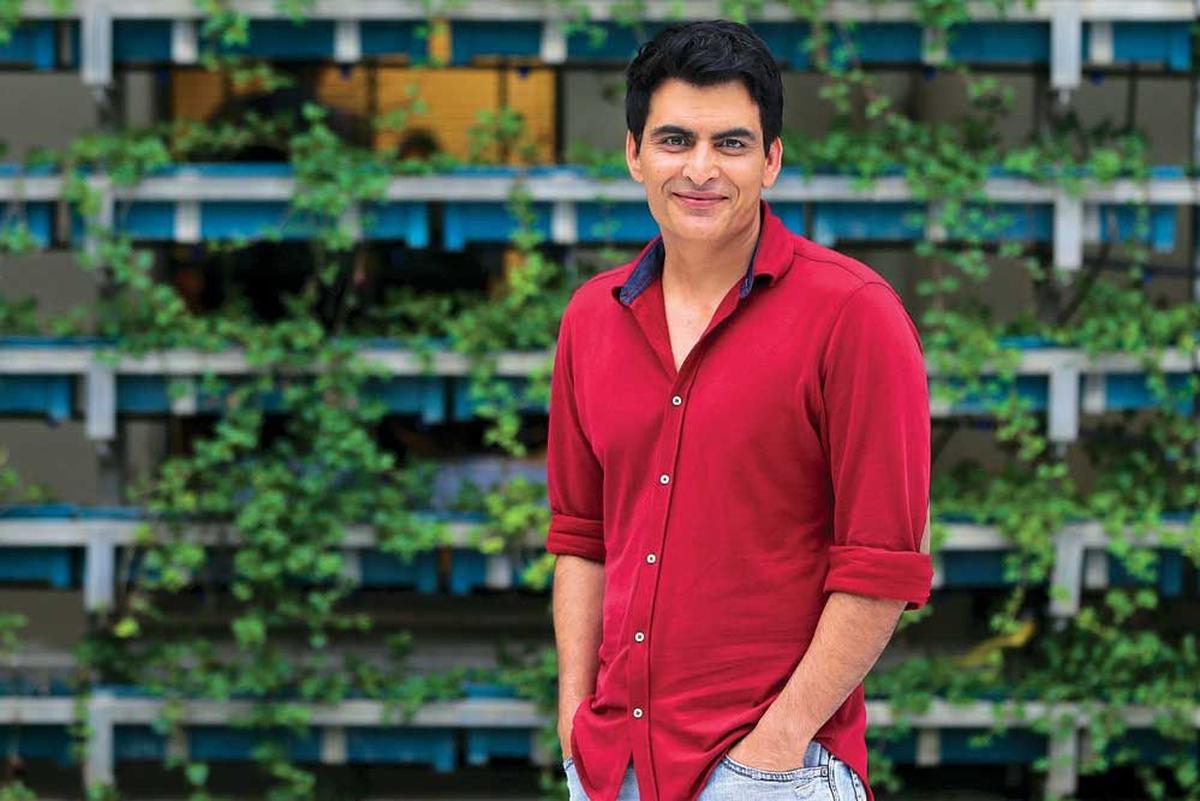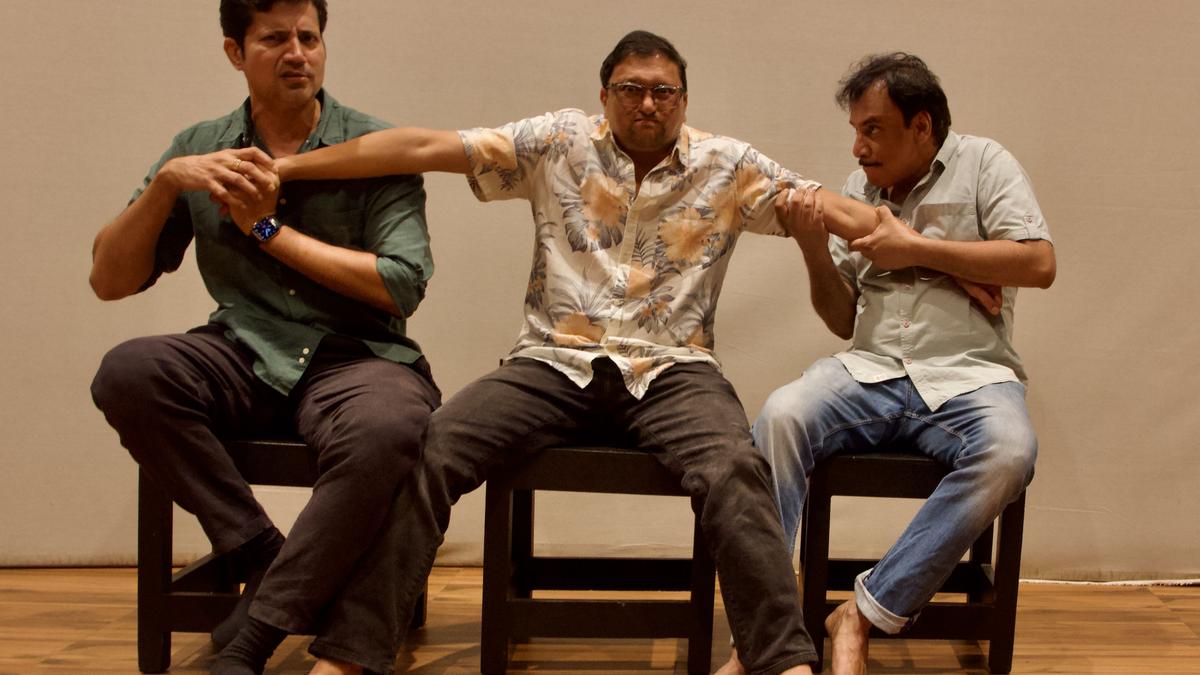Shubrajyoti Barat, Sumeet Vyas and Gopal Datt in a scene from the play
| Photo Credit: Special Arrangement
Park is relevant to the present time — when urbanisation is encroaching into spaces, when ethnic groups are being targeted and when immigrations are being forced by conflicts. Written and directed by Manav Kaul, the play was recently performed at Kamani Auditorium in New Delhi. It featured Shubrajyoti Barat, Sumeet Vyas and Gopal Datt.
The play revolved around three men — each suffering from one woe or the other. They reach an isolated park one afternoon, seeking to pass the time in some peace and quiet, but each asserting his claim over an occupied bench. The three benches in the park face the same direction and offer the same view. And three men is all it takes for Park to expose the human need to exercise control over space and its narrative.
What begins as a light-hearted territorial banter escalates disproportionately. A quarrel over a shared public space turns into a probe into the politics of space — its access or the denial thereof.
The play asks questions — What does it mean to have a full and equal membership in a society? What distinguishes one’s claim or right as superior to the other? Who belongs more to a place — the native who has moved out, or the migrant who has lived there longer; one who can speak the language or the one who contributes with finance and stature; one who studied there or the one who works there; one who shares a history with the place or one whose future depends on it?
Shubrajyoti plays a government official in dire need of an afternoon nap, and hence, is bent on getting the only sweet spot under shade in the park. He agrees that space is a timeless issue and migration, a phenomenon older than history.
Says Manav Kaul, “It feels weird that the things that used to disturb me when I was writing the play in 2007, are more relevant now than they were back then. I don’t think it’s a good sign for the society, the country or the world at large.” When asked if there’s a message he wishes to give to the audience, Manav Kaul says, “My writings are a reaction to what I see — things I read, things I value.” He believes writing is a by-product of reality and its discontents.”

Manav Kaul
| Photo Credit:
Special Arrangement
The wit and humour in Manav’s writing, however subtle, is not lost. Be it in the age-old trope of ‘curious’ strangers, eavesdropping conversations in public or constantly stretching personal boundaries.
“You may laugh while watching the play, but give it an adequate thought and you realise it is a reflection of a sad reality”, says Sumeet, Vyas, who plays a displaced law graduate. His character demands the perpetrators be displaced in exchange — demanding justice served in equal proportions to the injustice. As Sumeet points out, “It reflects human behaviour — three people in a park, fighting over an ‘ideal’ spot when there are three benches available and they could comfortably sit anywhere.” Although, he wonders if the play will ever be irrelevant and adds: “Even if we keep performing it for the rest of our lives, these problems will remain.”
No matter how well sociologists such as Zygmunt Bauman argue for the liquidity of modern life, the idea of body politics will never cease to exist. Identity is and will remain a seamless matter of debate. Park preserves the art of politically-and culturally-aware storytelling. It is conscious of crises at all levels — regional, national, and global — and treats them with empathy, albeit, discreetly. A reflection, and a reminder of the fact that politics is an undeniable part of human life, quotidian or otherwise.
Published – July 31, 2025 04:39 pm IST

